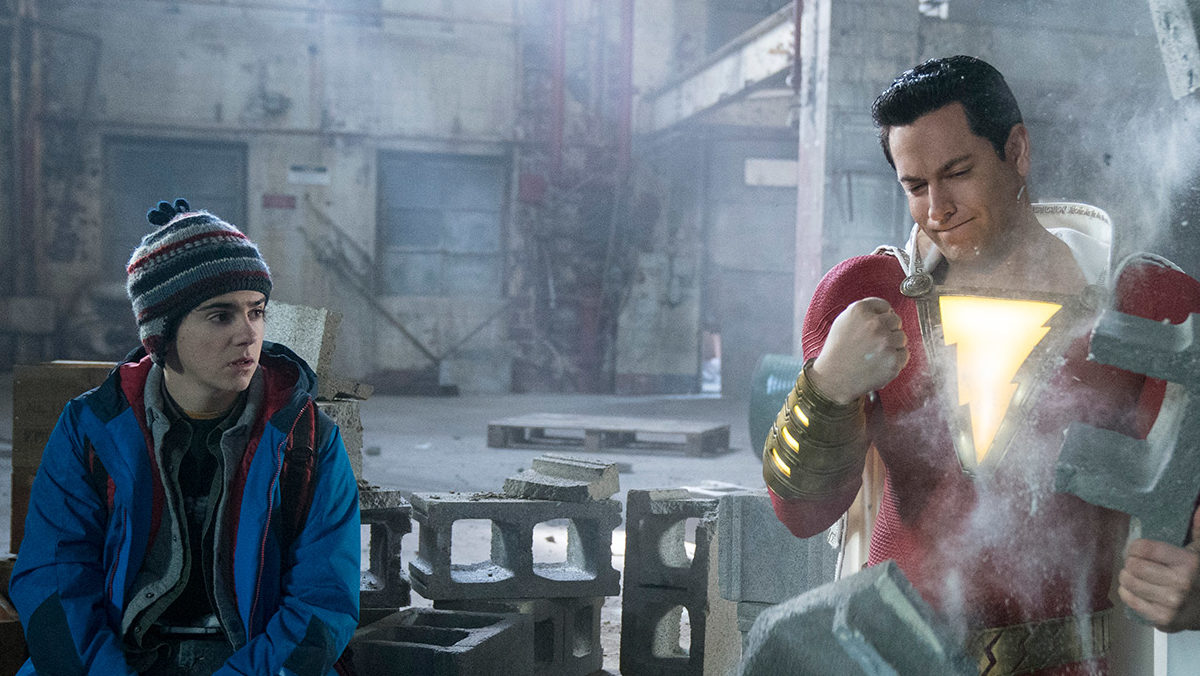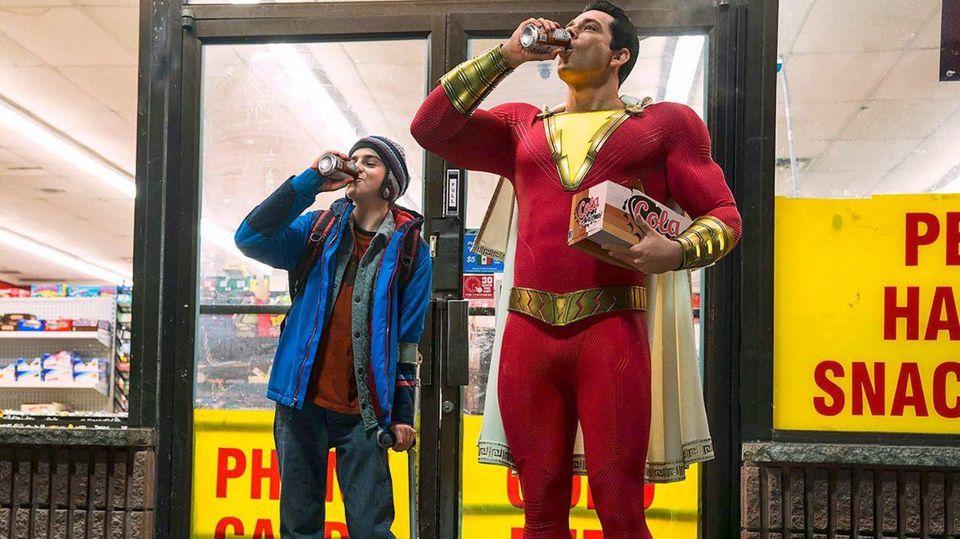David F. Sandberg’s Shazam! is often paradoxically fresh in its staleness. The film is fundamentally built upon the foundations of two distinct narrative blueprints, the superhero origin story and the overnight age-up. If you’re not cluing into what the second of these is all about, arguably the most famous example of the concept is Penny Marshall’s 1988 comedy, Big. You are assuredly aware of the first, a filmmaking movement that has irrevocably altered blockbuster filmmaking over the past decade.
Both of these blueprints have been done to death in Hollywood. Shazam! doesn’t play with expectations of those models so much as it merely unites two. A couple wrongs sometimes make a right, apparently. There’s a lot of light enjoyment to be found in Sandberg’s film. To a degree. When Shazam! is at its most charming, you’ll likely forget you’ve seen it all before.
At its least charming Shazam! retains a brand of staleness that’s likely to infiltrate any superhero or overnight age-up film unwilling to adopt a rehabilitated perspective. Most of this dreariness is conveyed during the superhero-centric moments of the film. Regardless of the Big-esque (and there are some overt references to the influence of Marshall’s film) lens with which Sandberg frames his titular character, the scenes in which that character engages with his newfound powers, and the subsequent superhero plot beats, are the dullest of the film.
More engaging is all the stuff that superhero films often treat as conductors from one action scene to the next. Shazam! doesn’t fall into that trap, managing to convey something powerful about the significance of foster homes in its smaller scenes, even if it is conveyed through a rosier outlook than perhaps reflects reality.
Batson may be a restless soul but his underlying valiance doesn’t go unnoticed by an ancient wizard, named Shazam, imparting an important lesson for edgy teenagers to reign in their nastier inclinations lest they forego an opportunity of extraordinary superpowers. The wizard, played by Djimon Hounsou, is the same sort that has been protecting the world from the dark using the powers of the light that you’ve undoubtedly come across at many points during your career of popular culture consumption. Recognising Billy’s potential, and also in a state of desperation, the wizard imparts his powers onto the young boy.
At the cry of the word/name ‘Shazam’, Billy becomes an adult superhero (Zachary Levi) with powers close enough to Superman’s that they certainly justify the legal ramifications that occurred during the genesis of the character during the late 1930s and early 1940s. Here’s where the film gets less interesting. As charming as Levi might be, anything involving the adult Billy/Shazam is less watchable because of the more inherently compelling performances by the younger members of the cast. When Angel is not involved because the narrative is focused on his adult counterpart, Shazam! loses one of its principle charms.
Crucial in maintaining that charm is Angel’s easy-going rapport with Freddy Freeman (Jack Dylan Grazer), a fellow foster child also living under Victor and Marta’s care. Their relationship, their chemistry, more than any marketable concept that helped greenlight the film, sustains a sincere sense of joy throughout Shazam! It is an easy film because of that joy and ultimately it is also a slight one.

